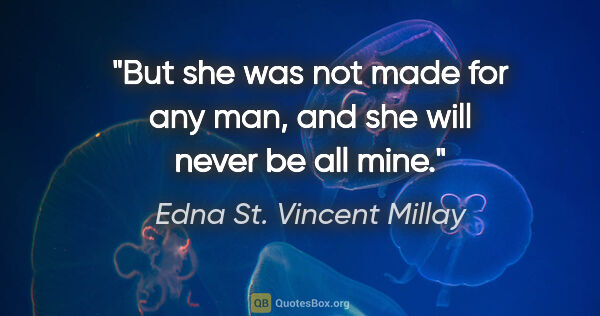Made Quotes (page 248)
Why did colleges make their students take examinations, and why did they give grade? What did a grade really mean? When a student "studied" did he do anything more than read and think-- or was there something special which no one in Walden Two would know about? Why did the professors lecture to the students? Were the students never expected to do anything except answer questions? Was it true that students were made to read books they were not interested in?
B. F. Skinner
It {Darwin's theory of evolution] was a concept of such stunning simplicity, but it gave rise, naturally, to all of the infinite and baffling complexity of life. The awe it inspired in me made the awe that people talk about in respect of religious experience seem, frankly, silly beside it. I'd take the awe of understanding over the awe of ignorance any day.
Douglas Adams
Her soliloquy crystallized itself into little fragmentary phrases emerging suddenly from the turbulence of her thought, particularly when she had to exert herself in any way, either to move, to count money, or to choose a turning. "To know the truth--to accept without bitterness"-- those, perhaps, were the most articulate of her utterances, for no one could have made head or tail of the queer gibberish murmured in front of the statue of Francis, Duke of Bedford...
Virginia Woolf
Morning or night, Friday or Sunday, made no difference, everything was the same: the gnawing, excruciating, incessant pain; that awareness of life irrevocably passing but not yet gone; that dreadful, loathsome death, the only reality, relentlessly closing in on him; and that same endless lie. What did days, weeks, or hours matter?
Leo Tolstoy

Joseph Stalin was a great man; few other men of the 20th century approach his stature. He was simple, calm and courageous. He seldom lost his poise; pondered his problems slowly, made his decisions clearly and firmly; never yielded to ostentation nor coyly refrained from holding his rightful place with dignity. He was the son of a serf but stood calmly before the great without hesitation or nerves. But also—and this was the highest proof of his greatness—he knew the common man, felt his...
W. E. B. Du Bois


